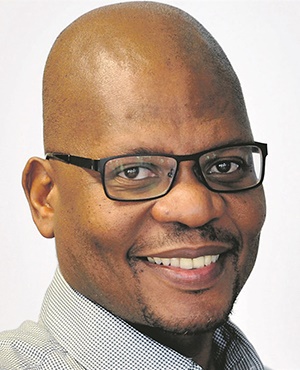
Your initial reaction when you see South Africa’s ranking on the World Happiness Index is that it is bull dust because, at number 106, we rank below nations that definitely cannot be happier than us, this nation of kwaito, gqom and sakkie-sakkie.
We are, after all, this joyous nation that parties so hard on weekends that we express our exuberance by stabbing each other with broken bottles.
So how can it be that we rank beneath sullen Pakistan?
Or Nigeria, whose people seemingly can’t wait to get out and are thus to be found in every corner of the planet?
How can we be below Saudi Arabia, where women are treated like toddlers and where the term ‘human rights’ is a swear word?
Is it really possible that the people of Congo Brazzaville, Tajikistan and the Philippines are happier than us?
Are we unhappier than the people of Ireland, who have to put up with Irish whiskey while we savour the superior Scottish waters?
This is obviously a simplistic take on the Happiness Index, which measures different aspects of human life to arrive at its conclusion.
But South Africans would be justified in feeling hard done by because we live in a country that is much more transparent than many of the nations we are compared with.
Basically, we know more about our circumstances than many people know about their respective countries, and we are therefore in a better position to be aggrieved.
Given that we are in an election season, there is a section of the comprehensive report that is of particular relevance to us.
It is the section that asks whether happier people are likely to be engaged with politics, whether they are likely to vote for incumbents and whether unhappier citizens are more prone to voting for populists.
Basically, how do voters – on the left and the right – use their levels of happiness or unhappiness to make their electoral choices?
The trend coming out of research across the globe is that the happier people are, the more engaged with politics they are likely to be, and that “very unhappy people are likely to be disengaged from politics”.
The study concludes that “happier people are not only more likely to engage in politics and vote, but are also more likely to vote for incumbent parties.
This has significant implications for the electoral incentives that politicians face while in office.
There appears to be a significant electoral dividend to improving societal happiness, beyond ensuring a buoyant economic situation.”
The index adds that, because of this, governments are increasingly focusing their policy making on improving citizens’ well-being, not only for its own sake, but also “out of enlightened self-interest”.
That means going beyond GDP to focusing on direct improvement in livelihoods.
Of interest to parties contesting the May 8 election is that “individuals with healthy household financial situations are more likely to profess a preference for governing parties”, and that incumbent parties “generally receive a higher vote share” if the economy is buoyant during the election year.
The question now is whether our anaemic economy, squeezed household budgets and high unemployment rate will affect attitudes towards the governing party.
On whether happiness levels influence a shift to populism, the index says that, while “unhappy people” have always been well disposed towards populist ideas, unhappiness is not the sole driver of the rise of populism.
The unhappiness has been activated in the political sphere by other factors, such as social media as a source of information and “the loss of credibility that elites suffered” after the 2008 global economic meltdown.
Which then brings us right back home.
Already on the campaign trail, opposition parties have been tapping into the unhappiness in the electorate.
Joblessness, the high cost of living, poor service delivery and rampant corruption have been major themes.
DA leader Mmusi Maimane told attendees at a Human Rights Day rally in the depressed town of Bekkersdal, Gauteng, that the ANC was unhappy to secure human rights.
“How do you have rights when you are hungry? When you don’t have a job, you don’t have dignity. There can be no human rights without jobs. How can you have a right to dignity when your child can’t go to school when it’s that time of the month because she can’t get sanitary towels?” he said.
EFF leader Julius Malema bemoaned the conditions under which the people of the Vaal, where the Sharpeville massacre took place, still lived.
He promised them the basic human rights of salaried jobs with provident funds, as well as utilities such as 24-hour clinics.
Conscious of the fact that he was the head of state and did not have the luxury of using Human Rights Day to campaign, President Cyril Ramaphosa highlighted the achievements of the democratic republic while reminding the people why they should be happy.
Even in the face of the electricity crisis, he sought to remind South Africans that, while just over a third of the population had electricity in 1994, that figure is now 80%.
And there was hope for happiness in the future.
“We will overcome the electricity crisis, just as we will overcome unemployment and poverty, crime and corruption,” he rallied.
Let’s see how happiness affects the parties’ fortunes come May 8.




 Publications
Publications
 Partners
Partners








